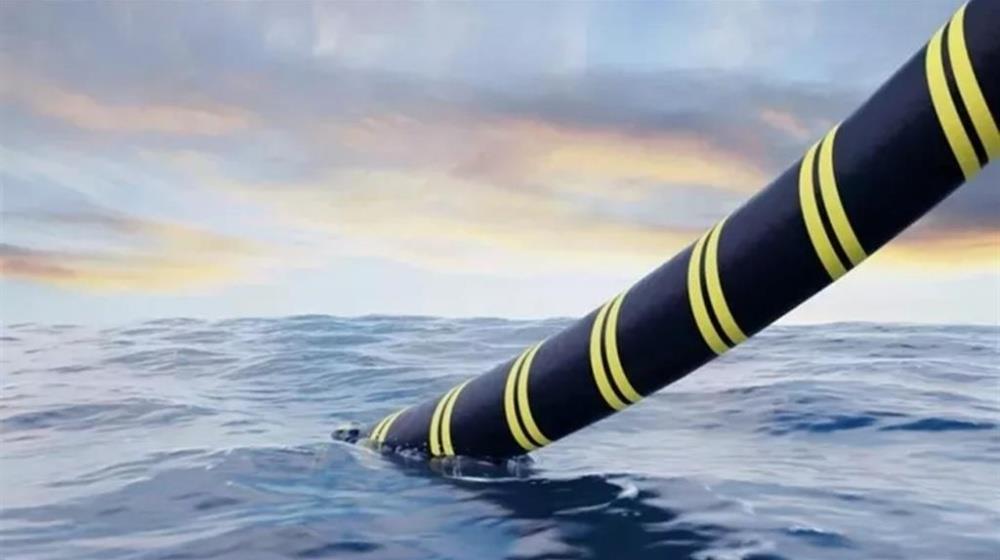The dispute between Greece and Cyprus over the Great Sea Interconnector (GSI) project appears to be moving toward a partial and conditional agreement, following a meeting on 17 October at Greece’s Ministry of Environment and Energy.
The meeting was chaired by Deputy Minister Nikos Tsafos, with the participation of the regulatory authorities RAE (Greece), CERA (Cyprus), and Greece’s Independent Power Transmission Operator (IPTO).
According to Greek news site newmoney, the Cypriot side insisted on its chosen methodology framework for verifying investment expenditures, which effectively recognises an amount of €82 million, while the remaining €251 million claimed by the operator will be reassessed in 2027, when the final audit and settlement of expenses will take place.
The €25 million payment that Nicosia is expected to make under the intergovernmental agreement, covering IPTO’s costs, remains scheduled for early 2026. Meanwhile, IPTO has already filed a lawsuit in Cypriot courts against CERA for refusing to recognise the full amount of expenditures. According to informed sources, this is a multi-page appeal, and the Cypriot side is already preparing its response to counter IPTO’s arguments.
The operator’s concern
IPTO’s main concern is that, based on CERA’s decision, if the project was halted today, only €82 million of expenses would be recognised, despite total investments of €251 million already made. The operator argues that this poses a risk of financial exposure, as there is no guarantee that the Cypriot authority will approve the remaining amount during the final review in 2027.
Thus, Friday’s meeting marks a temporary de-escalation after days of heightened tension, but it does not resolve the major obstacles to the project’s implementation.
The dispute over recognition of the GSI expenses took on political dimensions after President Nikos Christodoulides accused the Greek operator of “blackmail” in late September – remarks that triggered strong reactions and prompted Greek Prime Minister Kyriakos Mitsotakis to intervene to avoid a deeper crisis between the two countries.
IPTO’s objection
During the most recent meeting, IPTO reportedly argued that the €25 million payment could be considered an illegal state subsidy if not accompanied by final approval of the total €251 million in investments.
The Cypriot side countered that this amount is a fixed provision of the Greece–Cyprus intergovernmental agreement, intended to secure the project’s financing, and has already been approved by the European Commission’s Directorate-General for Competition (DG COMP).
The Commission has confirmed that the payment is entirely legal, provided that a final regulatory audit follows at the end of the period.
The Cypriot rationale for the €82 million
CERA maintains that the recognised €82 million ensures full project liquidity for the next three years. According to sources close to the Cypriot authority, the operator has already secured the fixed annual amount of €25 million provided under the Greece–Cyprus agreement, functioning as a financial stability mechanism until project completion.
In 2027, during the final audit, all investments will be verified based on the submitted documentation and evidence. It was therefore agreed that CERA would issue a new regulatory decision aligned with RAE’s, following the same principle of partial recognition of expenses, with final settlement and audit in two years.
In practice, both regulators had already given the green light more than a year ago for CAPEX of €572 million for 2025. RAE had also temporarily approved regulatory revenues of €7 million, allowing final settlement based on actual costs upon project completion. CERA, for its part, reaffirmed the payment of the €25 million arising from the intergovernmental agreement.
In both cases, the final audit will take place in 2027, when all expenditures will be verified.
A temporary, but not final solution
Despite official statements about “convergence of views” and “constructive cooperation”, the situation remains fragile. Senior sources acknowledge that this agreement does not solve the underlying problem; it merely closes one of the project’s many pending issues.
In simple terms, the conflict has been paused – but not resolved. Addressing the regulatory issues does not yet mean that construction or preliminary works can begin. Rather, it stops the public confrontation that had threatened to derail the entire project.
“The agreement between the regulators was necessary to lower the tension, not to launch the project,” sources familiar with the discussions remarked.
(Source: newmoney.gr)









